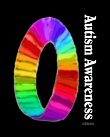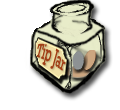Theory of Mind, outside the textbook
Zane at ST today: one last leap before the semester ends.
It was his last session of the semester today. Among the activities, they made ice cream and ate it at the end of ST. Ice Cream is one of Zane’s favorite things, so this was a big hit. I waited for him to finish his ice cream to ask “what did you do today” (he has a visual schedule that helps him relay what he did to me, and learning to relay information like that is a major point for ST this semester). When he finally finished, he was not interested in the schedule, but wanted to ask for more ice cream. We told him there was no more. After pushing him to tell me what he did (met with mumbles and “MADE ICE CREAM!”), he booked it back down the hallway to the room.
The Clinical Educator, the ST student teachers and I moved into the observation room to see what he was doing in there. One of the students suggested he was going to throw away the cup and spoon, which he is a bit compulsive about, but I suspected he was going to try and make more ice cream. He wandered around the room, the way he does when he is contemplating a plan, and decides to pull the bookcase out where the student had hidden the ingredients “out of reach”. He stood there with the container in his hands, trying to decide what to do next I guess. He started looking for either the other ingredients or the recipe, but stopped one time to look at the door. I suspect he heard a noise and was trying to determine if it was the door opening. It was suggested that he was hoping somebody was coming to help him make some ice cream. I doubted that was what it was, but it was certainly possible.
His student teacher heads down the hall to get him, and we watch him resume looking for ingredients. We didn’t have to be told when he heard the door handle jiggle though….the kid startled and sprinted across the room, hiding the container, presumably pushing the case back against the wall (out of camera range) and was standing there with that “I’m not doing anything” body posture when she came into the room. The small group watching in the observation room all cheered and excitedly exclaimed how fantastic that was, how wonderful. Then we laughed at ourselves because only in the world of autism do people get really, really excited to see a kid be deceptive, sneaky, or lie. Theory of mind, baby. Theory of mind. He is getting it. One of those unteachable things, but he is getting it.
Along the same lines…earlier in the day
When I told Zach about the ST experience, he relayed a similar event from earlier in the day that he forgot to tell me. We have the Leapfrog letter whammer on our fridge. It is Zora’s, but Zane keeps trying to take it over to play with it, and hates it when she is playing with it. After a battle, he had been banned from the kitchen while she was playing with it. Every time Zach would get to his computer, Zane would go into the kitchen…Zach would get up, Zane would step back out, after a few times of this, Zane waited until Zach sat down, repeat dance. Zach told him to go do something else, so Zane went to the computer, Zach went to his computer, and all was quiet for a minute and then Zane got back up and started heading to the kitchen. When Zach got up to follow him, he stepped back out of the kitchen and ‘decided’ that he was going outside all along, and wasn’t going into the kitchen. Now Zane is outside, Zora is still in the kitchen, and Zach heads back to the computer. After a bit he hears a rustle and sees Zane sneaking back inside to the kitchen, gets up, and sends Zane to his room. lol. The constant back and forth dance of Zane trying to sneak was amazing, and fairly new, especially on this level of sophistication. It was pretty cool.
For those going Huh?, your happy your child is being deceitful?
Yes, I am. VERY happy. In order to employ manipulation and deceit, you have to understand how other’s will react to your actions. You have to be able to form a theory of how the other person is thinking and plan your actions around that to get the outcome you want. Autistics, as a whole, are very, very bad at lying, and in some cases, incapable of it. (nor do they understand that others lie or are being deceptive in any way) It is one of the core issues with autism…inability to be able to understand how other’s think or recognize that other people have thoughts.
From a parents POV, the dilemma
I really want him to be able to continue to develop this. This is one of the key issues of the difference between institutionalization and not, the ability to be able to tell when people are lying, the ability to decide when it is in your best interests to lie, deceive, or manipulate a situation. It is a HUGE safety issue and I really want him to develop those skills.
However, trying to find the balance of encouraging the development while teaching him that you should be honest with your parents/loved ones, ect is really going to be tough. I have no clue how to do this. With typically developing kids, the hard part is getting them to be honest when they should be (to us, to authority figures we feel are trustworthy)…they figure out long before they speak that deception is a way to get what you want. (like Zora provoking Zane by hitting him, and then complaining loudly when he retaliated just to get him into trouble..until we figured out what was happening and she started getting into trouble instead of Zane) There aren’t any books out there that say “How to teach your child when to tell the truth and when to lie” because for most kids “never lie” covers it well enough because they instinctually know that lying is sometime a better choice for their own safety and comfort (and your job is to tell when they are trying to avoid punishment, ect, and try and get them to stop doing it to YOU, just to strangers).
Some days kids make leaps that make you really step up the parenting game. Today was one of those.


That is really remarkable! I’m sitting here thinking “and I take it for granted/get irritated when the kids get sneaky” (like Rhi hiding the crayon behind her back when I catch her coloring on the wall for the 100th time) not thinking about it in a necessary developmental sort of way, that it’s good, really.
Yep, I totally get it! I get so frustrated when my son is deceptive, but I am always thinking how cool it is that he has the thought process to *be* deceptive.
When you figure out the balance, let me know, hehe.
I honestly would have taken so much for granted regarding my son’s development were he not autistic. Like Jessemommy said, many parents get irritated with the sneakiness, never realizing it’s all a natural part of child development. No offense to Jessemommy! Just thought I’d reference her comment because I’ve often thought to myself, “If he weren’t autistic, I’m sure something as simple as teaching him turn-taking (among others) would NEVER have occured to me.”